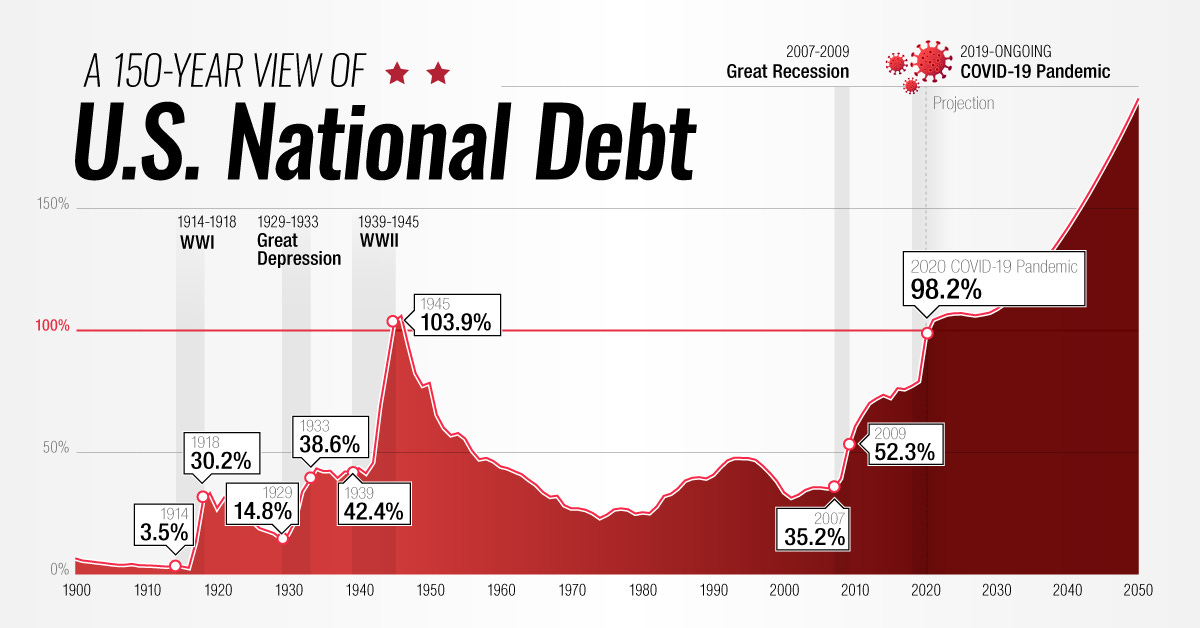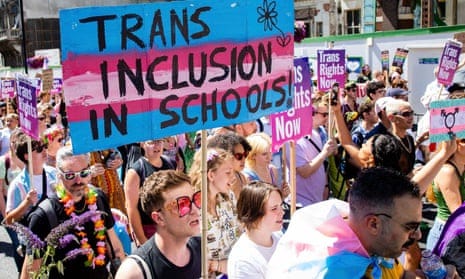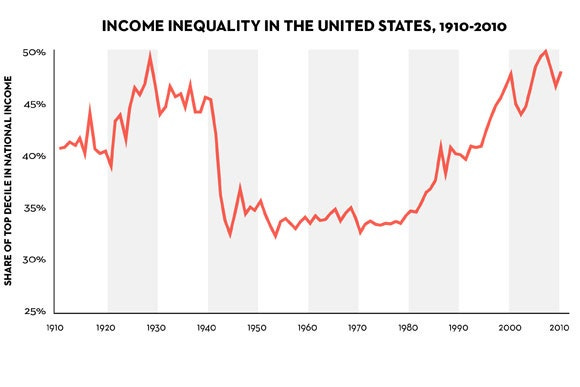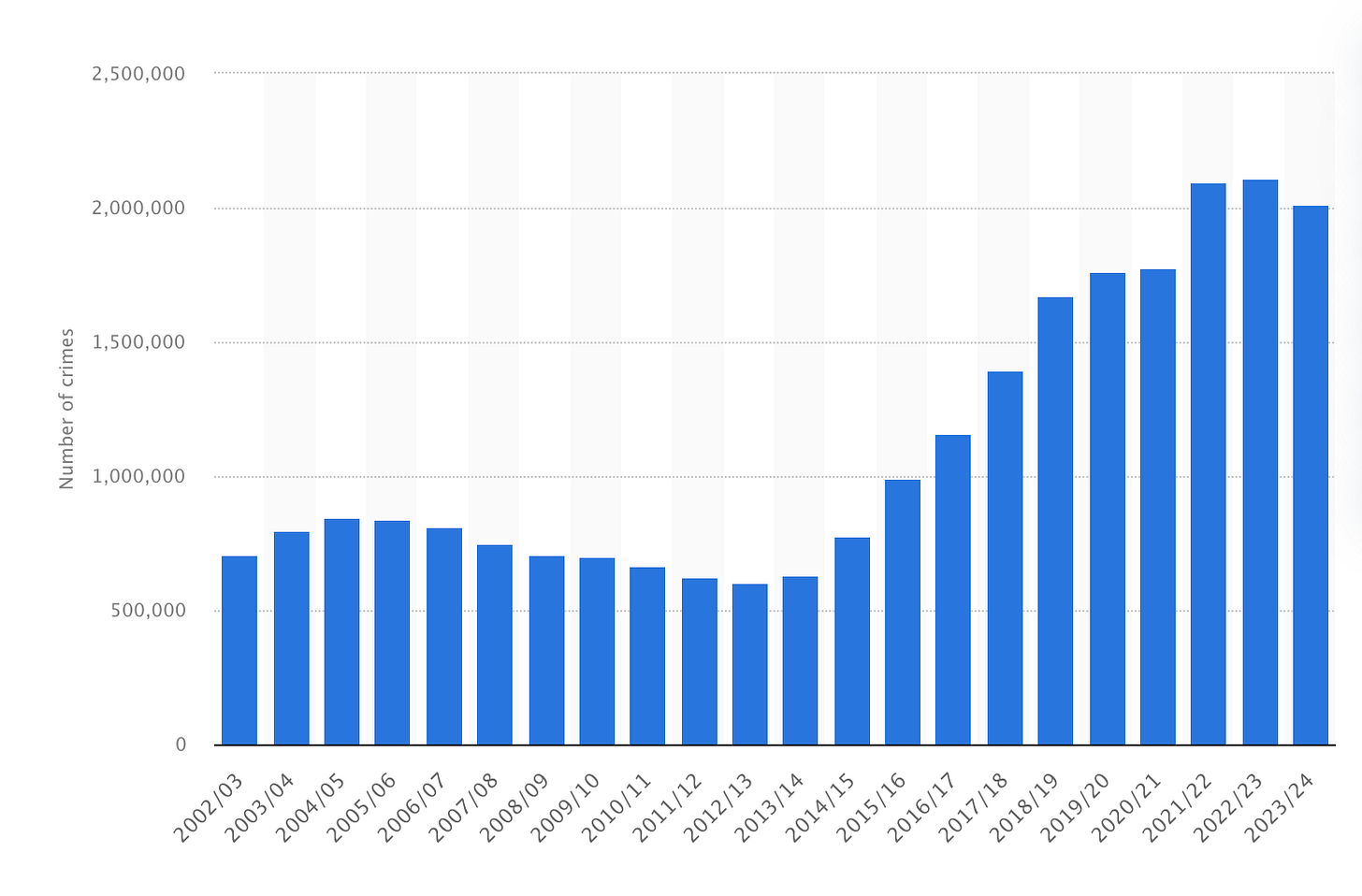The Fourth Turning
On crisis and the rhymes of history
Something is rotten in the state of The West
I started writing this piece three weeks ago. In the last ten days or so, things have really unravelled fast. Every day that passes, crazier shit seems to happen.
However, this trajectory has been long in the making. Since the 2008 crash, we have been living through a slow-motion economic, political and cultural crisis. A perfect storm of financial, demographic, technological, socio-cultural and political forces have collided and the result, not to mince words, is a clusterfuck.
There are three sections to this piece:
WTF is Happening? A non-exhaustive summary of the various factors contributing to the mess the West finds itself in.
2024 - A Turning Point: why this year matters more than most.
We have been here before: a look at the parallels with the situation in the 1930s, and several other points in history, and some thoughts on what this means for us.
It’s a long one, but I think you’ll enjoy it.
WTF is Happening?
1. We have an economy propped up by quantitative easing, which has driven an ever-increasing wealth divide.
The rich are getting richer and the poor are getting poorer, because only asset holders get rich when you print money. Covid made this much, much worse, but it’s actually been happening very gradually since the gold standard was abandoned in 1971.

And despite growing productivity over that time period, wages have not increased to match inflation. In London, house prices have increased 1,500% relative to wages over the last 40 years. In New York, 362%, in Dublin 700% and in San Francisco 932%.

In the last 10 years, the number of people getting food from food banks in the UK and USA has skyrocketed - it’s no longer just housing, many people literally can’t afford to feed themselves.


Governments are out of ideas for how to solve this. They have borrowed from Peter to pay Paul - the US government now has $35 trillion in debt!
The UK government’s debt stands at around $3.5 trillion. In France - $3.4 trillion. Germany - $2.6 Trillion. For most governments, it hasn’t been this high since WWII.

To some extent, US debt this high might be OK because the world runs on the dollar. This means the Americans can just print more dollars to pay off their debts without destroying the value of their currency too much (they can increase their currency’s supply without affecting its value because there’s a lot of demand for it).
However, financial sanctions against Russia are actually forcing the West’s competitors to reduce their dollar reliance. If countries like Russia and China hold less dollar debt and trade using dollars less often there is a risk that long-term demand for the dollar drops. Combined with increasing supply, the US’ ability to continue inflating away its debt by printing more money without destroying its economy is diminished.
Then there’s tax. Taxes are already high, but people’s sense of satisfaction with government and institutions is decreasing.



Side Note - if you want a short primer on why global markets tanked yesterday, it’s all about the Yen carry trade.
In short, asset management firms were borrowing Japanese yen for super cheap and investing the borrowed money in money markets or global stocks. Japanese central bank rates have remained low for almost 20 years, and even negative for much of the last 10. So basically you borrow money for free, invest it for a 5% profit elsewhere and pocket the difference.
But last week the central bank of Japan raised interest rates (to 0.25%) for the first time since 2007, at the same time as central banks in Europe & the US are considering rate cuts.
This caused the Yen to rapidly strengthen against the dollar, leading brokers to “margin call” borrowers - i.e. force them to deposit cash to cover potential losses. To do this they had to quickly sell their (typically dollar-denominated) assets ("unwind" their trades0, which were falling in Yen-value, in order to basically pay back the Yen they owed.
Unwinding lots of trades fast caused the stocks to fall in value. This meant their yen-value was falling even faster, meaning they had to sell even more to pay back the Japanese lenders. A domino effect, a bit like a short squeeze. This, combined with fears of a US recession, led to a significant market correction.2. Meanwhile, everyone is getting older, and our healthcare systems are creaking.
A smaller and smaller working population, earning less and less money relative to the cost of living, carries the tax burden.

3. Technology: the internet and smartphones have fundamentally changed how we work, interact and communicate. They have rewired our brains and our culture in ways we do not fully understand.
In many ways we are worse off.
Misinformation and hatred spreads like wildfire online - not ideal in economically unstable times such as ours. It seeds distrust in each other, and in our institutions. Public trust in government is at record lows. So is trust in the media.


Kids who get smartphones earlier (girls in particular) become adults with poorer mental health.


4. We live in an age of harmful surplus
You are more likely to die of obesity than starvation. Temptation is everywhere - food, porn, drugs, social media, entertainment - and it’s designed to hack your dopamine systems and trick you into doing things that simply aren’t good for you in excess. As a result a lot of people feel and look like shit. Not good.



In the US, allowing companies to sell people prescription opioids has devolved into the fentanyl epidemic, with China actively participating in the chaos by exporting the raw materials for fentanyl production to criminal networks in the States.

5. Our manufacturing has been outsourced to the developing world
This was a move that seemed smart 40 years ago but looks like it may well now come back to bite us. Our working class have been left jobless and aimless. Communities have fallen apart. They are places filled with only decay, unemployment, drugs, crime and a painful longing for days gone by. This is the same whether we are talking about Middletown Ohio, Scunthorpe North Lincolnshire or Le Havre Normandy.
It also isn’t ideal when you might need to switch on your war machine pretty soon.

6. We are engaged in a proxy war with Russia that is draining resources. And Ukraine is losing.
This creates more government debt (to fund the war)! As mentioned above, sanctions are also weakening dollar dominance, decreasing the USA’s ability to inflate away the debt they are amassing.

Unfortunately, there is a second way war contributes to our problems - it creates market inefficiency, and this drives up the cost of everything.
Wars encourage countries to adopt self-reliance and impose sanctions on enemies, reducing trade and hence driving up the cost of many goods and services. Economic sanctions against the West’s key competitors have risen sharply in the last 5 years. Fossil fuel prices have been directly impacted by sanctions imposed on Russia, but much of the economy is affected indirectly.

7. Violence is on the rise
In Britain, we have a knife crime epidemic.
Little girls are being ferociously stabbed to death. Youths are being allowed to freely engage in mediaeval combat on the streets while the police look on, powerless.
UK Police-recorded violent crime is up more than 200% in the last 10 years (Statista), far faster than the population increase over that time (about 6%)
Similar increases in the number of rapes, murders and violent attacks have been reported in France. It’s been growing since 1996, up ~200% over a time period when population grew only 10%
In Germany the situation is more nuanced - crime generally is actually flat, although the percentage of crimes committed by immigrants does seem to have risen sharply since the migrant crisis, and faster than the rate of non-German population increase. The source is a guy on Reddit, but the data is corroborated by German Ministry of Internal Affairs reports.
8. In the midst of all of this, the Culture Wars have truly reached boiling point
The topic of gender and sexuality is being debated furiously in every arena, from sport to education.



Then there is race and immigration.
In the last two weeks or so in the UK, we’ve had violence between police and Muslim travellers at Manchester Airport, with a fierce debate online about who is in the wrong; the Roma community in Leeds attacked police and trashed their local neighbourhood after social services took four children into care; a British African man attempted to murder a soldier outside Gillingham barracks with a machete, and of course there were the horrific scenes in Southport when a 17 year old of Rwandan (non-muslim) origin murdered 3 children and attempted to murder several more, which led far right nationalists to trash a local mosque after misinformation about the murders spread on social media.
Things spiralled out of control quickly over the weekend. Protests up and down the country degenerated as skinheads rioted & trashed cities on Saturday night. Leeds, Manchester, Liverpool, Rotherham, Nottingham, Sunderland, Newcastle, Hull and many more places were affected (notably a lot of the places abandoned by the political elite since the Thatcher years). This is organised activity driven by the English Defence League (EDL), a far-right nationalist organisation. A Muslim Defence League appears to have sprung up in response, and there have been violent clashes between the two groups (warning - graphic content).

These acts are, of course, abhorrent. But we must see them in their context.
Working class people up and down the UK (and elsewhere in the West) have had it bad for some time. Their entire culture, way of working and way of life have been radically disrupted over the last 50 years. In the last 10 years, they’ve become radically poorer and more desperate. At the same time, the rate of net migration into the UK and Europe has ramped significantly. In the UK it has skyrocketed in the last 3 years in particular.

Migration has mostly been from countries that do not share the same values as Europeans, and there has been a significant influx of uneducated people from less developed countries in the last 10 years. The clash of Western Christian values and Islamic values is, undeniably, a central issue, particularly in the UK and France.



In the USA, the story is, in some ways, not dissimilar. Central and South Americans are arriving to the country in huge numbers. They also have higher birth rates, meaning the growth of this community over the coming 30 or so years is forecast to explode.

This process is happening way faster than Western countries can assimilate new arrivals into their culture and ways of living. And in an environment where opportunity is scarce for the poorest 90% of society, people simply do not want more immigrants.
Multiculturalism appears, sadly, to be failing.
The response from elites and the mainstream media is “boo fucking hoo you lot are racist scum”. For some reason they’re surprised this message isn’t getting through to people.
We have completely stopped listening to each other.
When you combine all the factors listed above, you have the mother of all shitstorms.
2024 - A Turning Point
2024 is a big election year.
So far, somehow, the System has resisted populism, or the “far right” as the media likes to call it.
I don’t think the terms “populist” and “far right” can be used interchangeably.
I do agree that elements of the populist right have some very concerning ideas, but I think they’re also picking up on valid issues, and collecting votes as a result from people who are certainly not “far-right” ideologically.
The centre so far does not have a viable counterposition, but is surviving for want of better options:
The Tories were swept out resoundingly in the UK. It was an election that they lost much more than one that Labour won, however - largely thanks to the rise of Nigel Farage’s populist Reform UK, who took plenty of Conservative votes.
In France, the cordon sanitaire against the populist Rassemblement National was shown to be resilient, if not severely strained, delivering a result that paves the way for tricky political gridlock.
However, the big one is still to come.
The assassination attempt on Donald Trump felt timely. Combined with a successful internal plot to oust the senile King Joe, we have a showdown to end all showdowns.
In the blue corner we have Kamala Harris, a mixed race female candidate backed by George Soros and the rest of the “Deep State Cabal”. She’s running with the profound message that Republicans are “Weird and Creepy”.
In the red corner we have Donald J Trump, Emperor of the Populists, whose associates are behind Project 2025, a sinister plan that aims to extend the powers of the President and take partisan control of the Department of Justice, the FBI, the Department of Commerce, the Federal Communications Commission and the Federal Trade Commission, as well as allow the deployment of the military for domestic law enforcement.
Naturally, he is backed up by JD Vance, a man who previously compared him to Hitler.
There has also been a notable mood shift in Silicon Valley, as people from Marc Andreessen to Elon Musk have rallied behind Trump. This is important - people get their news on X.

It truly feels like we are on the cusp of a pivotal moment in history.
Things are very fucking precarious.
You can feel the tension everywhere.
Wait a minute. I’m getting the strangest sense of deja vu. Have we been here before?
The 1930s were a shitty time in Europe and the USA.
There are three key ways in which the situation today echoes the situation then:
Income inequality, financial collapse, government debt, inflation
In Germany, there was hyperinflation of disastrous proportions in the 1920s. A loaf of bread in Berlin that cost around 160 Marks at the end of 1922 cost two hundred billion Marks by late 1923!
More details on the reasons for it here but tl;dr the fallout of WWI wasn’t good for Germany.In the USA, the problems started officially with the Wall Street Crash of 1929, but for over 50% of the U.S. population who lived on farms, the Depression began ten years earlier with the dramatic fall of commodity prices when demand from Europe dried up at the end of WWI. Much of the “Roaring” part of the Twenties was the result of loose credit and stock market speculation - the rich got richer, and the poor borrowed tons of money to buy stuff they couldn’t afford. Sound familiar?

Income inequality hasn’t been this bad since - you guessed it - the 1930s. Source: the New Yorker Once the financial crisis really kicked into gear, governments in both the USA and Europe created enormous amounts of debt, and, just like now, central banks printed money to prop up the economy, driving further wealth inequality. Just like now, there had also been massive recent societal upheaval due to technological innovation. The industrial revolution had led to railways, electrification, Big Oil, plus innovations like the automobile, telephone, radio and aviation. This had disrupted the labour market and further contributed to economic instability and income inequality. Anti-corporatism and hatred of billionaires (the “Robber Barons”) was a common theme in the 1930s, as historian Steve Fraser notes:
Biographies of Mellon, Carnegie and Rockefeller were often laced with moral censure, warning that "tories of industry" were a threat to democracy and that parasitism, aristocratic pretension and tyranny are an inevitable consequence of concentrated wealth, whether accumulated dynastically or more impersonally by faceless corporations.
Political instability and internal conflicts related to ethnicity, immigration and cultural change, leading to the rise of populism (on the left and the right)
In the aftermath of World War I, Europe’s borders were redrawn. Great Empires like Austro-Hungary were dismantled. Liberal democracies filled with people from different ethnic groups were pushed together, and cultural integration often failed. Some nation states, like Germany and Italy, were only relatively young (50 or 60 years old) and lacked unity.
Most of Europe (Britain, Belgium, the Netherlands, Germany, Poland, Ukraine, Russia, all of Scandinavia: 1917 - 1919) had also recently given women the right to vote, and post WWI women were starting to become more active members of the work force too, fundamentally shifting society’s dynamics in yet another important manner.

In this unstable environment, just like today, immigrants and non-nationals became obvious scapegoats for economic woes, and a common enemy people could rally against.
Populists - people willing to fight to win at all costs, and the rules be damned - rose to power. People were looking for strong leaders with a vision, a way out of the mess. Communism (the original far left form of populism) emerged as one political ideology and met its match in fascism on the right.
In the 1930s we saw three European democracies choose voluntarily to become fascist dictatorships - Italy, Germany and Spain (there was also Japan, which followed this path for similar reasons). All of the former Russian Empire (Latvia, Estonia, Lithuania, Ukraine, Moldova, Belarus) became communist.
The USA was not immune to social issues either - race was a central topic, with enforced racial segregation under the Jim Crow laws and significant public resistance to immigration, culminating in the Immigration Act of 1917. Women had also recently been given the vote, in 1920.

The rise of a competing Great Power creating a threat to the established political order
Today we have the rising China and expansionist Russia vs. the USA (and a declining Europe). Back then it was the rising Soviet Union vs. the late imperial European powers (particularly Britain) and the USA, with Nazi Germany later coming into the mix. This changing power dynamic acted as a destabilising force. As countries prepared for the possibility of war, they sought self-sufficiency rather than integration & efficiency, further driving up the cost of living for citizens. They also sought strong leaders, contributing further to the rise of populism. The exact same thing is playing out today.
Famously, last time this whole shitty mess culminated in World War II, the deadliest military conflict in history, with some 75 million deaths.
Many historians and philosophers, going all the way back to the ancient Greeks, argue that human history follows a very clearly identifiable cycle, culminating in a significant crisis (usually a war, whether civil or regional) roughly once every 80-100 years (i.e. the length of a long human life).
Historians Neil Howe and William Strauss refer to the crisis period in this cycle as the “Fourth Turning”. They have traced this pattern back almost 500 years in Anglo-American history. Roughly 80 years before WWII, you had the American Civil War. Jump back another cycle and you have the US War of Independence (and the French Revolution, incidentally). Prior to that (1687) there was the Glorious Revolution, when William of Orange deposed the last Catholic King of England (James II) and took over the country. Another 80ish years back takes us to the late 16th Century and the Anglo-Spanish war (rising England vs. declining Spanish Empire), which was followed by the rapid rise of the British Empire.

The upside of these crisis periods is that they tend to be followed by a boom time (yes, that’s why we call them Boomers). So I guess it’s not all bad.
But, in my opinion, we are not out of the woods yet. In fact, I think we are just going in. It is hard to say what we will find in there, but I don’t think it is going to be pretty.
History doesn’t repeat itself, but it rhymes.
And a rhyme, it seems, is overdue.
PR
Thanks for reading The Odin Times! If you think it’s time to stock up on Anduril secondaries, you can find out more about Odin (tools for VCs and angels to deploy capital seamlessly) here, or subscribe for more blog posts below.














Excellent piece.
Very good 👏. Only other angle would be housing theory of everything / established West stopped building homes + infra